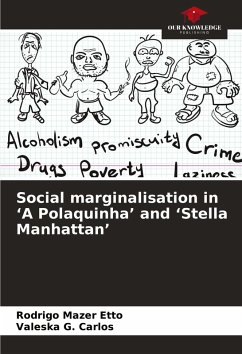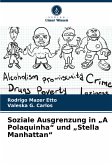From the second half of the 1980s onwards, literature was concerned with portraying the social problems that Brazil was facing with the end of the military regime. In this sense, this work proposes a reflection on the relationship between social marginalisation and sexuality, using the characters from the book Stella Manhattan (SANTIAGO, 1985) and the work A polaquinha (TREVISAN, 1985), both published in 1985, the year that marked the end of the military regime in Brazil. Through the methodology of a bibliographical review, and using theoretical references from Lauretis (1994), Beauvoir (2009), Spivak (2010) and Sartre (1993), this work aims to shed light on the question of the social location of subjects as a result of their sexual orientation. Some theorists, such as Hall (1999, 2000, 2003) and Woodward (2000), who deal with the issue of social identities in post-modernity, will also be presented. As the aim of this book is to draw a parallel between the two works, the relationship between sexuality and power, according to Foucault (1988, 2007), and the question of patriarchy and the female sex, according to Engels' theoretical assumptions (1980[1934]), will also be pointed out.
Bitte wählen Sie Ihr Anliegen aus.
Rechnungen
Retourenschein anfordern
Bestellstatus
Storno








